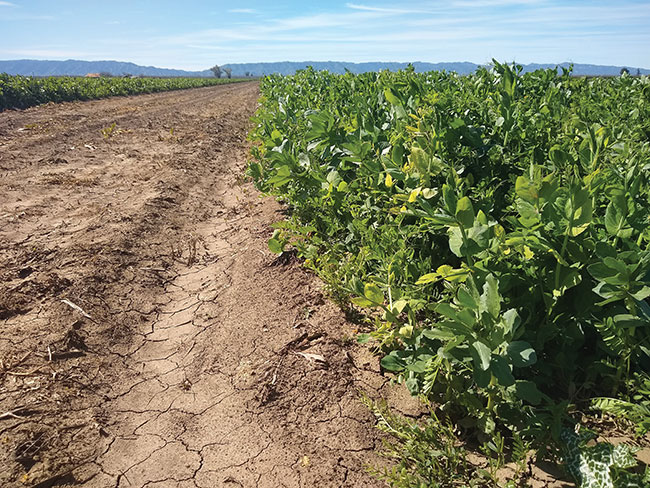
Features
Environment
Research
MM: Increasing long-term soil carbon storage
A long-term study shows compost is important to improving cropping systems and increasing carbon sequestration.
May 25, 2022 By Donna Fleury, courtesy of Manure Manager
 The study compared different management approaches to determine the impacts of cover crops and compost on carbon sequestration. Photo courtesy of Russell Ranch, UC Davis.
The study compared different management approaches to determine the impacts of cover crops and compost on carbon sequestration. Photo courtesy of Russell Ranch, UC Davis. Composted manure and other organic amendments benefit cropping systems while increasing the opportunity for long-term soil carbon storage and climate change mitigation. Researchers at the University of California, Davis, compared different cropping systems to understand the impacts of cover crops and compost on soil organic carbon (SOC) sequestration.
The research was conducted as part of the Russell Ranch Century Experiment, a cropping systems trial initiated by the university in 1993, which examines the long-term sustainability of soil health-building practices in irrigated Mediterranean agro-ecosystems of northern California.
“The focus of this 19-year long-term cropping study project was on tilled row crop systems under the semi-arid Mediterranean region conditions of this area, which typically have wet winters and hot, dry summers,” explains Kate Scow, professor of soil science and microbial ecology and director of the Russell Ranch Sustainable Agriculture Facility.
“We compared the use of composted poultry manure amendments, which are sometimes used in row-cropping systems in this region, the use of winter cover crops and the combination of composted manure and cover crops to determine the impact on SOC sequestration at different depths.” |READ MORE
Print this page